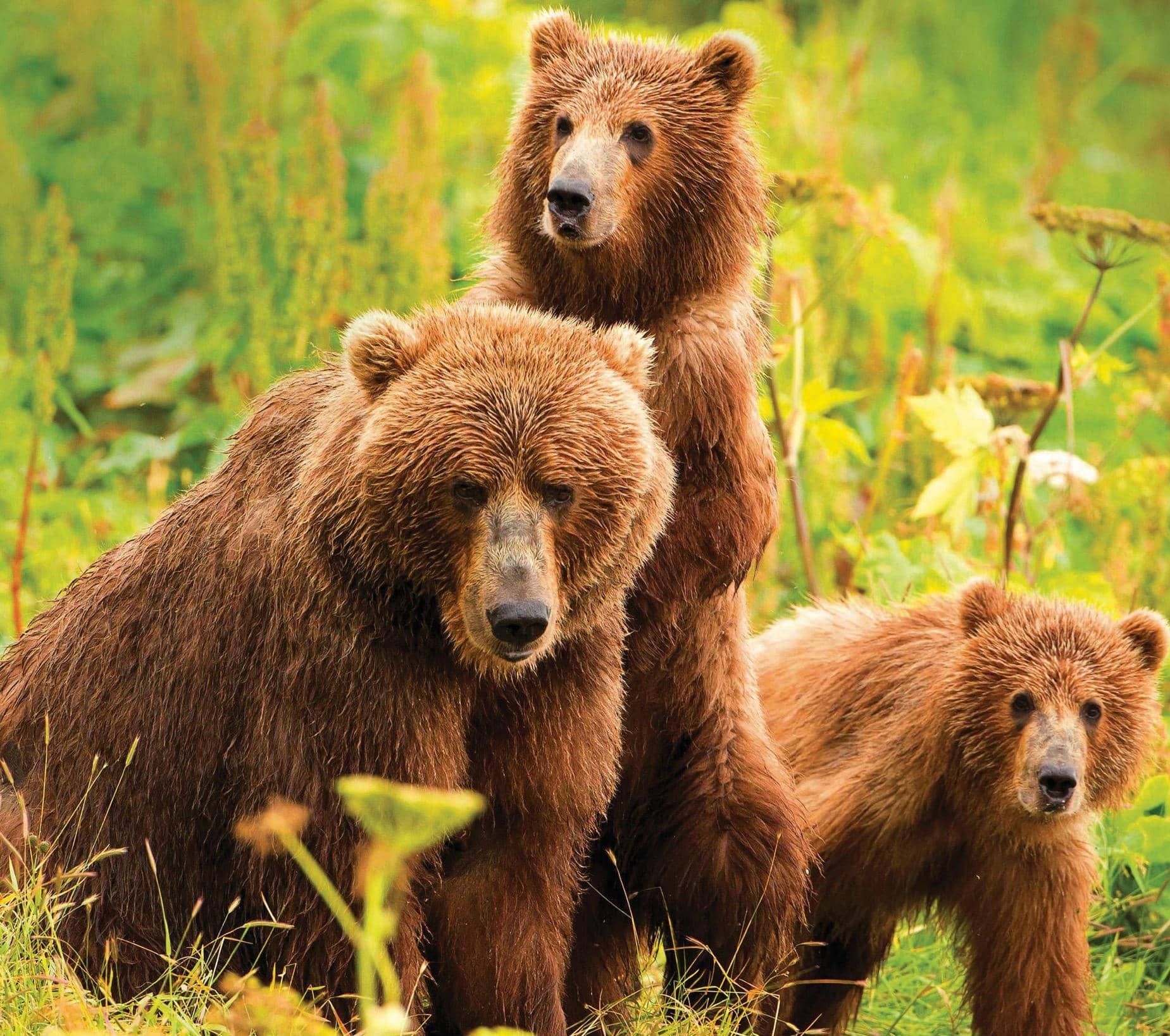
THE BIOLOGICAL IMPACTS OF CLIMATE CHANGE ARE too often summarized by one image: a polar bear stranded on a shrinking iceberg. Though iconic, this trope glosses over the rich story of struggle and adaptation that underpins all climate change scenarios. Because what matters is not so much the change itself, as the responses to that change. If every species was able to get along just as well in all conditions, then altering the weather wouldn't matter in the slightest. But that's not how nature works. Biodiversity stems from specialisation, a great accumulation of plants and animals adapted to particular environmental conditions. With those conditions now in flux, species must react in order to survive - changing locations, behaviours and even their bodies in profound and surprising ways.
Chilling on the rocks
Rocky Mountains, USA
Pikas benefit from a cool microclimate
IMAGINE A GREYISH-BROWN, RABBIT-LIKE creature the size of a grapefruit and nearly as round that is an American pika. These rotund little mammals inhabit high mountains from the Rockies westwards to the Pacific Ocean, and have always been considered at risk in a warming climate. Like other alpine residents, pikas have nowhere else to go when temperatures rise and habitats shift uphill. But in an era defined by change and adaptation, new research suggests they might benefit from an unusual strategy - do nothing.
Pikas live almost exclusively in and around rocky slopes known as taluses, nesting in crevices between the boulders and venturing out only a few feet to gather grasses and wildflowers from nearby meadows. (They drag the snipped vegetation back home for later consumption, storing it in piles charmingly referred to - even in scientific papers -as haystacks.)
This story is from the June 2022 edition of BBC Wildlife.
Start your 7-day Magzter GOLD free trial to access thousands of curated premium stories, and 9,000+ magazines and newspapers.
Already a subscriber ? Sign In
This story is from the June 2022 edition of BBC Wildlife.
Start your 7-day Magzter GOLD free trial to access thousands of curated premium stories, and 9,000+ magazines and newspapers.
Already a subscriber? Sign In

SNAP-CHAT
Justin Gilligan on giant spider crabs and holding hands with an octopus

STEPPE CHANGE
Herds of saiga have returned to Kazakhstan, but there's a fine balance to tread

TREES FOR LIFE
Community is at the heart of conservation in the tropical forests of southern Belize

WHEN DOVES CRY
Turtle doves are now the UK's fastest declining bird species, but the RSPB is on a mission to save them

SURVIVAL OF THE CUTEST
We can't help being drawn to cute creatures, but our aesthetic preferences both help and hinder conservation

LIGHT ON THE NORTH
Spectacular images of Arctic foxes, reindeer and musk oxen reveal the wild beauty and diversity of Scandinavia

ROLLING IN THE DEEP
The super-sized crustacean that lives in the deepest, darkest ocean

LET'S GET TOGETHER
Clay licks deep in the Amazon explode in a riot of colour, with macaws the stars of the show

FEMALE OF THE SPECIES
To sponge or not to sponge? That is the question for the bottlenose dolphins (Tursiops aduncus) living in Shark Bay, Western Australia.

7 nature encounters for the month ahead
WITH NATURALIST AND AUTHOR BEN HOARE